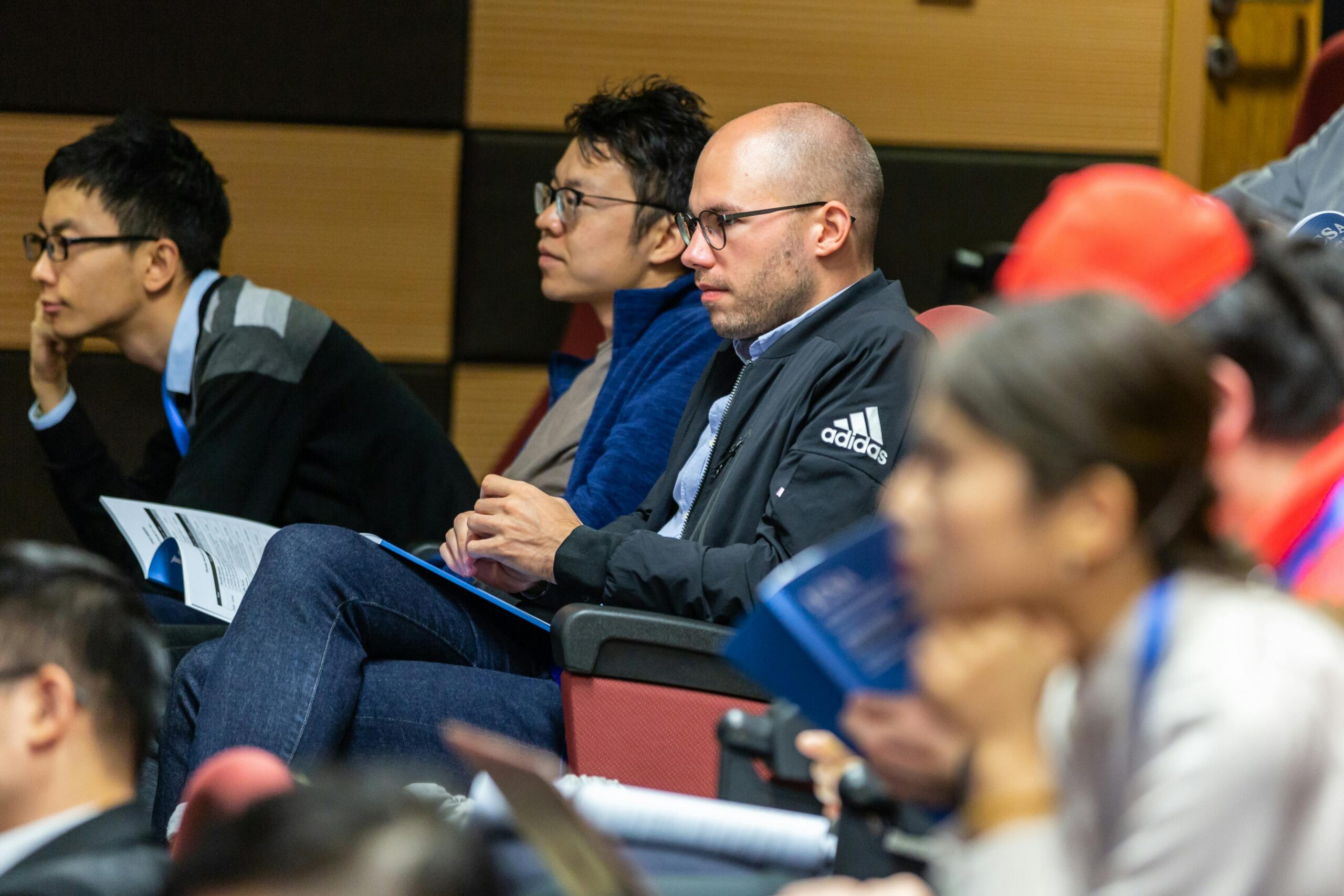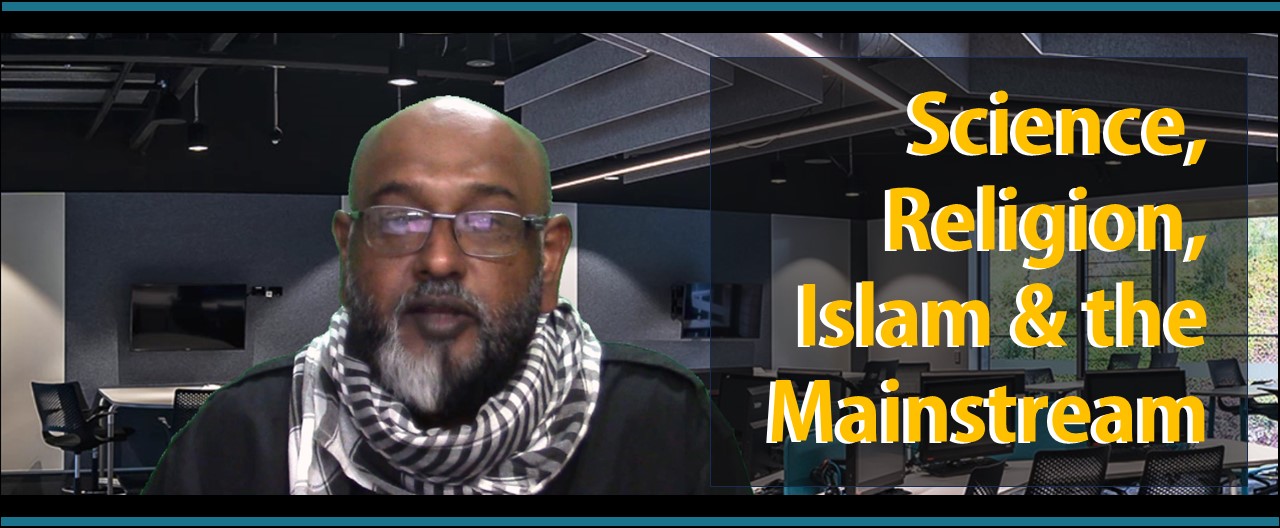Monthly Archives: July 2024

The Lifelong Learning Imperative: Staying Ahead in a Rapidly Changing World
Done in collaboration with PDMAcademy & Masjid us Salaam, La Sophie Trace.
In today’s fast-paced world, the need for continuous learning, upskilling, and incorporating diverse perspectives into our thinking has never been more critical. Whether you’re a student, a young professional, or a seasoned expert, the landscape of knowledge and skills is constantly evolving. There are a number of trends driving this necessity, and commensurate with these are significant benefits that can accrue to persons on this path.
The Need for Continuous Learning
It used to be that once you specialize in a particular area, you could have dedicated your career to perfecting your craft. Today, with the advancement of technology and volatility in the marketplace, persons no longer have that luxury. Fast changes and diverse audiences – and the opportunities associated with them – demand flexibility and adaptability. Learning, unlearning and relearning are becoming standard, and figuring things out mid-journey, in shorter segments (i.e. the agile method) are fast moving to the norm. What are the trends that drive this need for continuous learning?
- Technological Advancements: The rapid pace of technological innovation means that skills quickly become outdated. Fields like artificial intelligence, machine learning, and data science are evolving so fast that staying current requires ongoing education.
- Globalization: In an interconnected world, understanding different cultures, markets, and business practices is crucial. Continuous learning allows you to adapt to and thrive in diverse environments.
- Changing Job Market: The job market is dynamic, with new roles emerging and others becoming obsolete. Upskilling ensures you remain competitive and can transition smoothly between different career paths.
- Information Overload: With the vast amount of information available, the ability to discern credible sources and synthesize diverse viewpoints is a valuable skill. Continuous learning hones this critical thinking ability.
Unparalleled Benefits
The reality today requires a particular approach. Those oriented to stability and comfort would balk at the need to unlearn and relearn, or lament the effort required to keep up with changes. Those seeking the excitement of a dynamic landscape would savor the volatility and constant changes – there’s little room for boredom. But regardless of which side of the coin you fall, there are numerous and significant benefits that can accrue from these trends.
- Enhanced Employability: Regularly updating your skills makes you a more attractive candidate for employers. It demonstrates adaptability, a proactive attitude, and a commitment to personal growth.
- Personal Growth and Fulfillment: Learning new things keeps the mind active and engaged. It can lead to personal satisfaction, increased confidence, and a sense of achievement.
- Better Problem-Solving Skills: Exposure to different ideas and disciplines fosters creativity and innovation. It allows you to approach problems from multiple angles and develop more effective solutions.
- Career Advancement: Continuous learning can open doors to new opportunities and higher positions within your field. It equips you with the knowledge and skills needed to take on greater responsibilities.
- Adaptability to Change: In an ever-changing world, the ability to learn and adapt is essential. Continuous learning prepares you to navigate changes in technology, industry trends, and job requirements.
The Ultimate Hack to Real-Time Progress
While self-directed learning is valuable, having a teacher or mentor can significantly enhance the process and experience, and minimize the effort required to internalize the subject matter and make use of it. This has been a tried and tested model of cognitive development from time immemorial, for many reasons, including:
- Structured Learning Path: A teacher provides a structured curriculum that ensures you cover all necessary topics comprehensively, saving you time and effort.
- Expert Insights: Teachers bring expertise and experience to the table, offering insights that you might not find through self-study. They can help clarify complex concepts and provide practical applications.
- Accountability and Motivation: Regular interactions with a teacher keep you accountable and motivated. They can help you set realistic goals, track your progress, and celebrate your achievements.
- Personalized Feedback: A teacher can provide personalized feedback on your performance, highlighting areas for improvement and offering tailored advice to help you succeed.
- Networking Opportunities: Teachers often have professional networks that can provide additional learning resources, opportunities, and connections within your field.
In a world where change is the only constant, continuous learning is not just an option; it’s a necessity. By embracing lifelong learning, upskilling, and expanding your perspectives, you position yourself for success in both your personal and professional life. And with the guidance of a knowledgeable teacher, you can navigate this journey more effectively, gaining the skills and insights needed to thrive in our rapidly evolving world. So, invest in your future today by committing to continuous learning and seeking out mentors who can guide you along the way.
MAI Institute in collaboration with PDMAcademy & Masjid us Salaam, La Sophie Trace have developed a training program to upgrade persons’ Technical and Industrial Skills and prepare them for jobs in the industrial workplace. Heavy industries, manufacturing and construction are a few of the opportunities that become available with basic skills in electrical wiring and occupational health & safety (HSE) training.
Find out more about the Technical & Industrial Skills Training Program, and gain the edge from more marketability and a different perspective


Science, Religion, Islam & the Mainstream
Mainstream media today will have you believe you need to choose between science and religion. And they spin it in a way to make science look modern and progressive, while religion is presented as barbaric and traditional.
We know that is a false narrative.
Throughout history science benefited tremendously from religion. In a simple example the Gregorian calendar that marks the solar year and changes to the seasons was introduced by Pope Gregory 13.
View the video on our YouTube Channel.
And be sure to subscribe & follow for more releases as they go live, & find out more ways to live the best life for this world, & the next.
We have another series of examples in Islam.
As Muslims explorers expanded into Asia, Europe and Africa, they still had to obey the command to face the qibla to pray, 5 times a day. The Quran says explicitly in 2:144 “turn your face toward al-Masjid al-haram. And wherever you [believers] are, turn your faces toward it [in prayer].”).
The problem was, how do you keep your bearings and maintain the direction of the qibla when you are 1000 miles away? Or travelling hundreds of miles per day in different direction. The answer was found in the Quran (6:97: “And it is He (Allah) who placed for you the stars that you may be guided by them through the darknesses of the land and sea.”)
Through that the Arabs consolidated knowledge of astronomy and developed it further than ever before. Ibn al Haytham was celebrated for his work in that area, in the period 1020-1040. To do that, he had to develop better optics, and that is an area as well, along with the introduction of the laws of refraction in which Ibn Haytham was also renowned. This also required the use of trigonometry, advanced by such persons as Al Khawarizmi and Al-Battani. Even the predictability of factors that informed the scientific method ibn Haytham introduced were guided by the Quran 30:30 which says “There is no altering (the laws of) Allah’s creation.”
For Muslims, religious contributions to science, or scientific discoveries evidenced in religion is the norm, and there is no contradiction or competition. Persons who study Islam recognize the relationship, and are able to use Islam to guide even further development, for the benefit of all humankind, and for the best in this world, and the next.